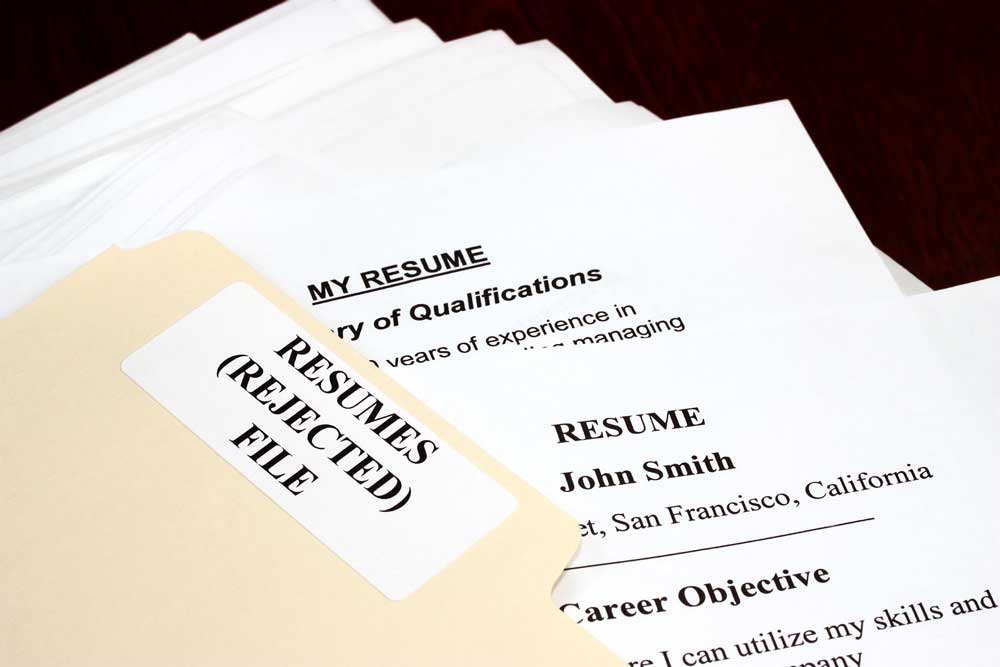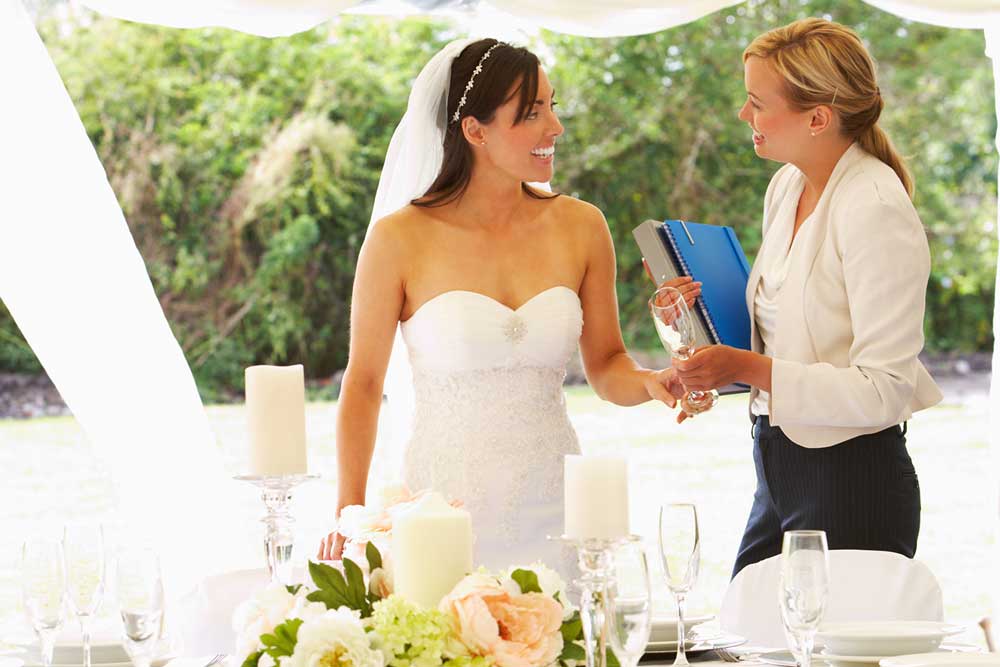As explained in the previous sections, The Truth About Event Planning Training and Education, and Why You Don’t Need Event Planning Courses, unlike most professions, you don’t need formal qualifications, education, or training to get into event planning.
In the events industry, employers place far greater emphasis on experience than education.
“30–40 percent of jobs require a degree of some kind, but initially when we’re recruiting we look at a candidate’s experience first and foremost—and if the skills match we would put them forward even if they don’t have the relevant degree”
The great thing about the event industry is that, at this stage of its evolution, it’s still accessible to anyone—you don’t even need to have a college degree.
As long as you have drive and commitment, the right personal qualities, and can develop the necessary core skills, you can go out tomorrow and get an entry-level support role. From there, you can work your way up the career ladder to become an event planner.
It is, however, essential that you go about it the right way, and with the right attitude. You can’t just sit at home passively sending out resumes—cold call style—looking for opportunities.
Nor can you expect employers to just ‘take a chance’ on you and had you an opportunity—even when it comes to unpaid work experience or volunteer roles.
Competition for these opportunities is fierce and an employer will want to see that you’ve helped yourself sufficiently before asking them for help.
If an employer looks at your resume, will they see evidence of your drive and commitment to getting into the events industry?
If your cover letter says that you are passionate about events, will that be reflected on your resume—in the effort you’ve made to get experience?

“Don’t just turn up from college or from a different profession saying you want to work in events. What have you done to prepare yourself to work in the events industry? If you haven’t put the work in, then you’re really asking me, as the employer, to take all the risk with our service and reputation on the line.”
When you’re first starting out in the industry and looking for work experience or entry-level positions, an employer will be looking for evidence of consistency, commitment, and drive on your resume.
It’s simply not good enough for a candidate to fall back on the excuse of ‘I’m just getting into the industry so I don’t have any experience yet.’
For an employer to give your resume even a second glance, you need to demonstrate to them that you are resourceful and proactive; that you’ve gone out and got a significant amount of experience of your own accord.
Don’t tell them you want to get into events, show them—by the effort you’ve put it.

“I don’t want to just see a resume telling me what fabulous school you went to or what grades you got. I want to see that you’ve taken some initiative to get event experience. They’ve got to have some experience on there, because if they don’t, that tells me that they’ve made no effort whatsoever and expect to go straight into an event job; but I’m sorry you haven’t actually tried to get any kind of experience. Have you sacrificed any of your personal time to try and get some experience?”
I mentioned previously that employers in the events industry are typically more interested in a candidate’s skills, qualities, and experience, rather than their qualifications.
While skills can generally be developed through experience, many of the personal qualities that make a successful event planner tend to be innate—you either have them or you don’t. They define how you think, operate, and respond—particularly onsite. Being an event planner involves a lot more than just being organized!
Before you start approaching employers—even for unpaid work experience—you need to understand what they’re looking for.

Check out this site’s companion book, Become an Event Planner: Secrets for Getting Hired from Employers, Recruiters, and Event Professionals to hear directly from employers and recruiters about what they are—and are not!—looking for in job-seekers. You’ll also learn exactly how to communicate these skills effectively through your resume and in an interview.
Keep in mind that the reason for getting relevant event planning experience is so that you are able to demonstrate the key skills, knowledge, and personal qualities that employers are looking for. You can’t just name-check skills and qualities on your resume and expect them to just believe you. Employers want you to show them, not tell them, what you can do by citing relevant experience and transferrable skills.
Fortunately, there’s a whole range of entry-level opportunities available to get into the events industry that anyone can go out and get—both paid and unpaid—that you don’t need prior experience for.
Plus, it's exactly the type of hands-on professional experience that employers respect, admire, and look for.
To find out more about these opportunities; what they are, how to get them, what they’ll teach you, and how to use them to build up a body of work experience that will impress employers, check out this site’s companion book here.

In addition to professional experience, there are certain types of extra-curricular, volunteer, and even amateur experience that employers like to see entry-level candidates have. That is because this communicates consistency, commitment, and drive.
Employers want to hire the people who’ve gone the extra mile, taken charge of their career, been proactive, and made things happen. For an employer, the clues to how driven and committed a candidate really is are often found by looking at what they do in addition to work or college.
“I once hired an intern because her resume showed me that she’d been involved in so many different events while still at university. She hadn’t just done one or two student events, she’d been involved with charity balls, student fashion shows, sat on various committees—all sorts of things. It was really obvious that she wasn’t just sitting on the sidelines; she was out there driving lots of big student events. I could see that she’d taken every opportunity she could to organize events.”
Although student events might seem small and insignificant in comparison to professional event experience, they are still an opportunity for you to demonstrate some of the core skills that employers are looking for.
Remember, it’s not so much the type of event an employer is going to be looking at, it’s the skills you demonstrated during the event planning.
“People often leave out stuff that they don’t think is professional enough to put on their resume. But if you’re just starting out you should definitely put everything that’s relevant on there. It’s still an event, so it will be a talking point and an opportunity to show what you did.”
Don’t listen to anyone who tells you that you shouldn’t use experience planning events for friends and family on your resume—they’re just being a snob.
Any experienced professional should be able to distinguish between ‘the event’ and ‘the event planning’. Employers don’t care very much what the event is, they’re far more interested in the processes you went through and the skills you demonstrated during the event planning. You just need to learn how to communicate this experience correctly, both on your resume and in an interview.
What’s important when citing friends and family events as experience is to look past the surface elements, such as the decoration and styling, and use them to show all the things you did behind the scenes.

If you can use your sister’s wedding as a way to demonstrate your project management skills and show an employer how you think and operate, then it doesn’t matter that the event itself is only a family wedding.
“Once, a girl came in for an interview and happened to mention that she’d spent a summer teaching at a summer camp, but she hadn’t put anything about it on her resume—probably thinking it wasn’t relevant. I said to her, ‘that’s the sort of thing when you’re starting out that you could include on your resume, because it will tell me something about you.’ Anything like that can be used to demonstrate team skills, communication skills or managing people, so it’s always useful—even if it’s not directly related to events.”
The suggestions above are just two very basic and abbreviated examples of the type of experience employers are looking for and how to use them on your resume and in interviews.
For more in depth information, advice from the professionals, and practical steps to follow, including:
Check out this site’s companion book, Become an Event Planner: Secrets for Getting Hired from Employers, Recruiters, and Event Professionals

Learn more about the ultimate guide for how to become an event planner—written by the professionals.